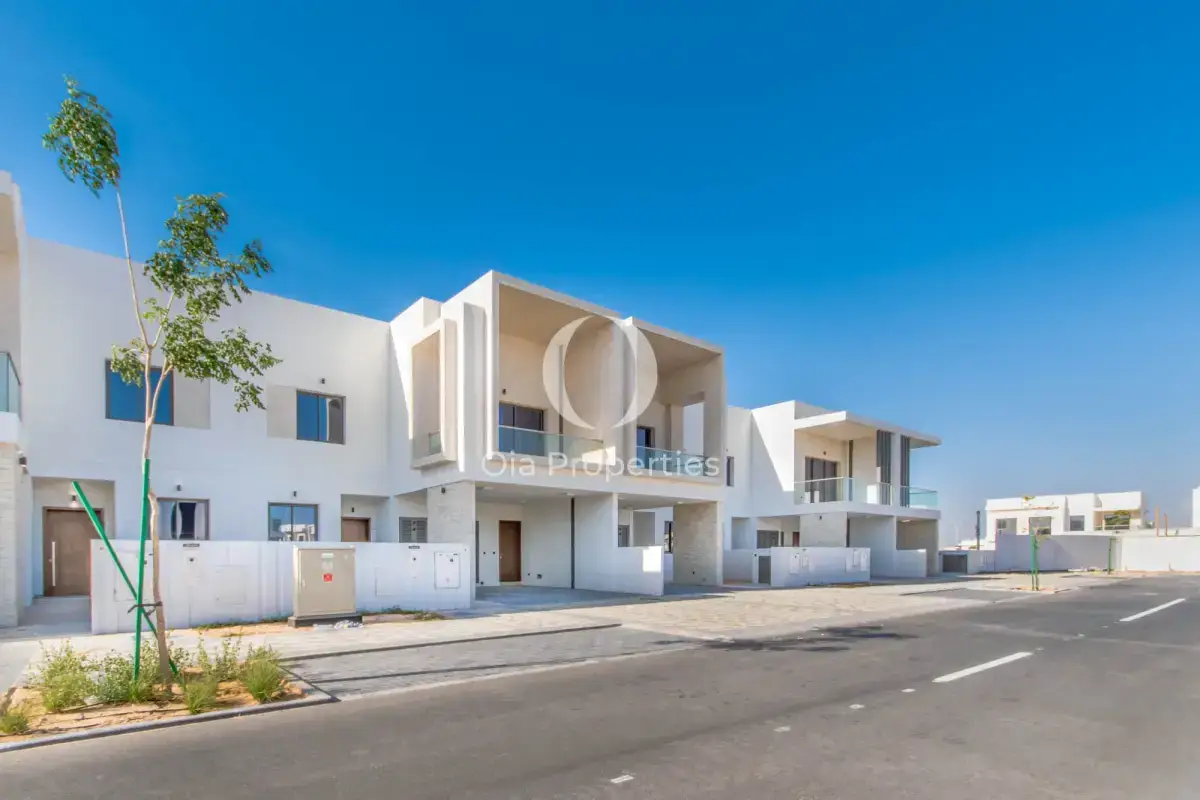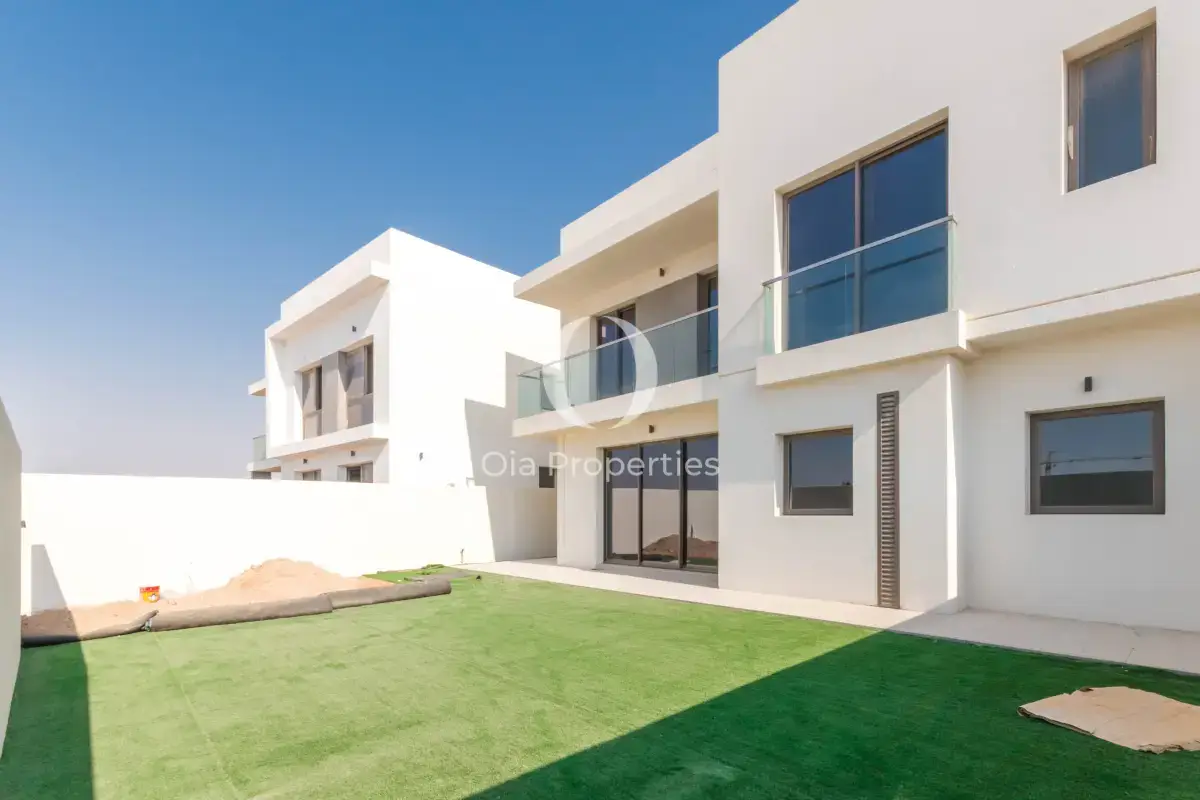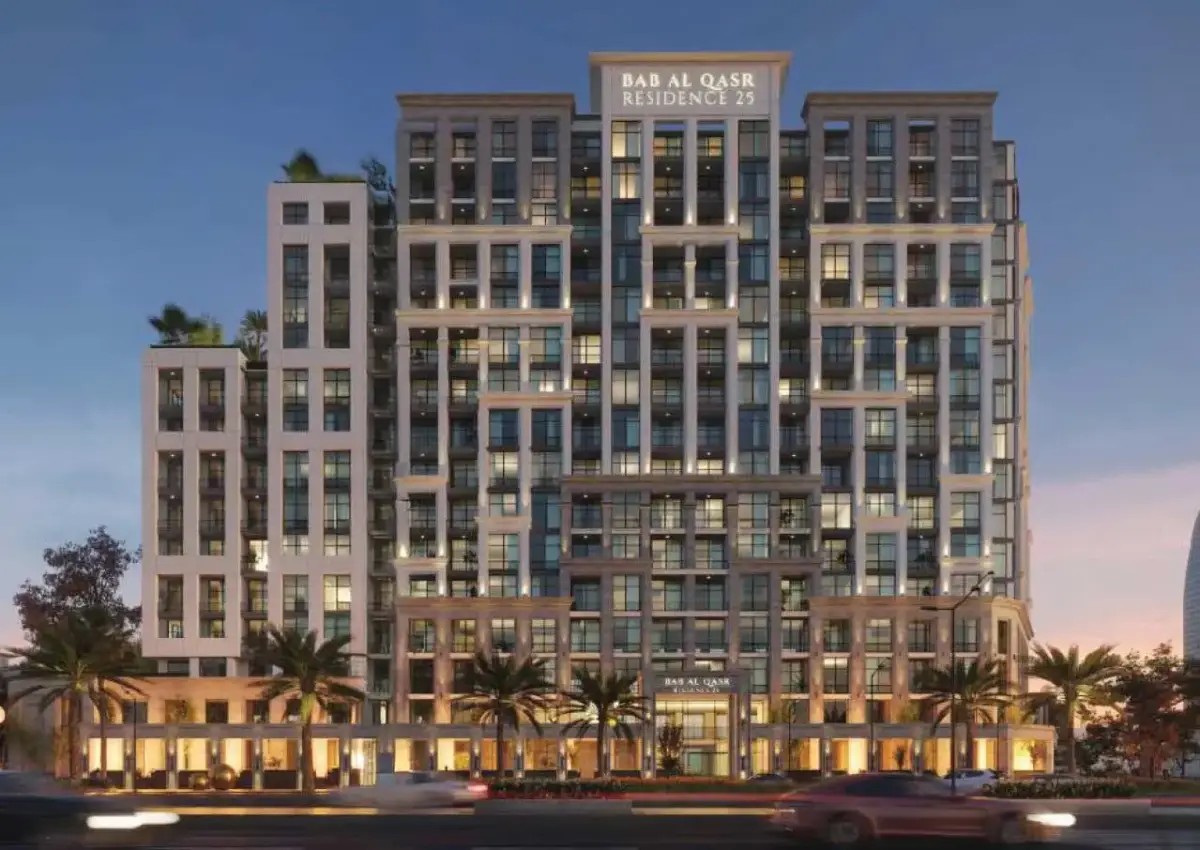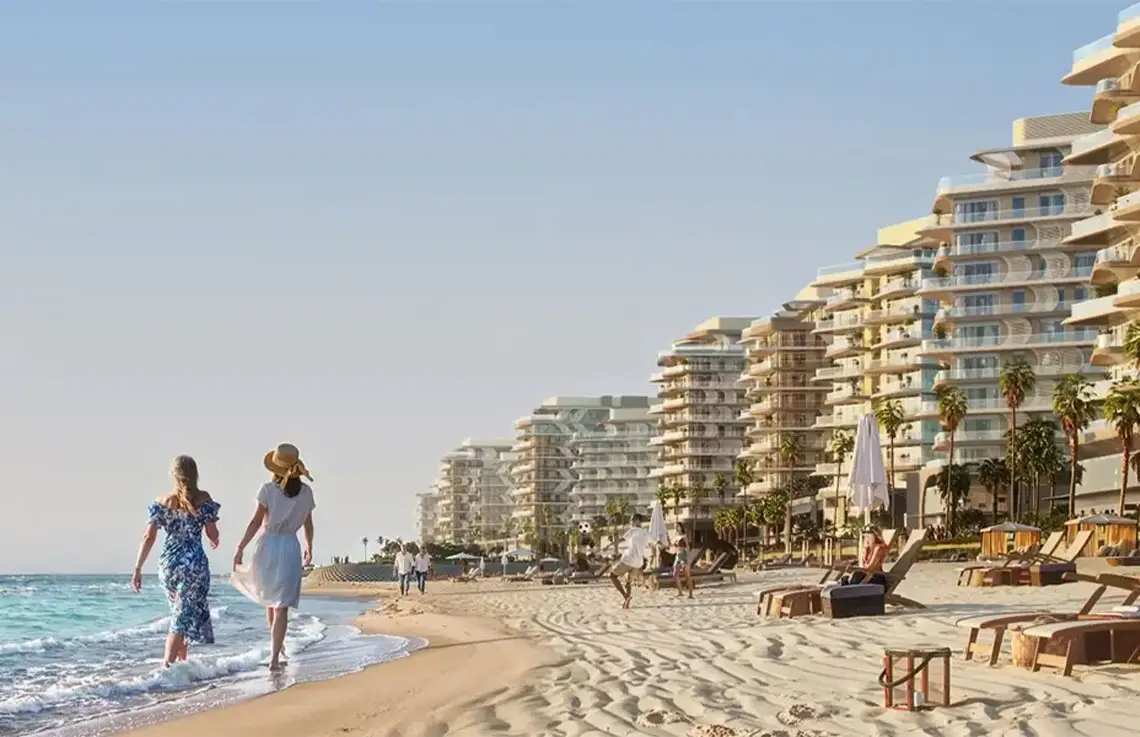Financial Guide For Living in Abu Dhabi in 2025
- June 02, 2025
- /
- Buyer and Seller Guides
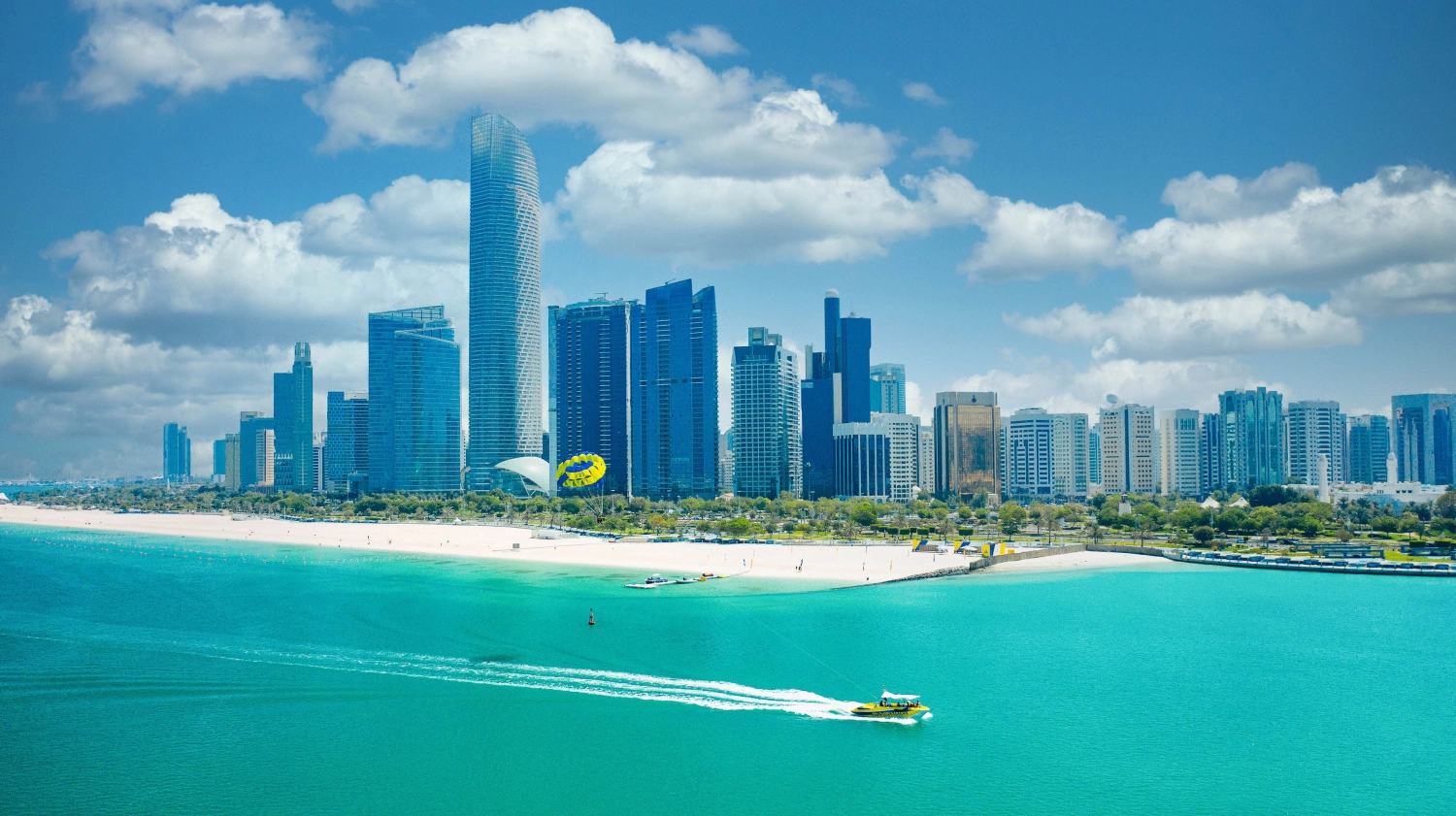
Abu Dhabi is a bright, modern city where thousands of people worldwide come to work, study, and raise families. If you plan to live here in 2025, it helps to know how much everyday life will cost to set a clear budget and avoid surprises.
Quick Snapshot: Average 2025 Cost of Living in Abu Dhabi
Most single residents in Abu Dhabi spend between AED 10,000 and AED 15,000 each month. Couples typically require between AED 18,000 and AED 25,000, depending on their lifestyle choices. These estimates include expenses for rent, food, transportation, and entertainment. The cost-of-living index places Abu Dhabi at 53.9, indicating that it is more expensive than many smaller cities but slightly less expensive than Dubai.
Housing & Rent Prices in 2025
Housing will likely be the most significant part of your budget. One-bedroom apartments in the city centre usually range from approximately AED 4,500 to AED 10,000 per month. In contrast, similar flats outside the city centre start at approximately AED 3,800. For larger three-bedroom units in central areas, prices can exceed AED 11,000.
Buying vs. Renting Breakdown
Buying a home may save you money if you plan to stay long-term. However, you must consider additional costs such as mortgage setup fees, agent commissions, and a 4% transfer fee. In contrast, renters typically pay one to four months' rent upfront and a refundable security deposit.
Popular Expat Neighbourhoods & Typical Rents
Al Reem Island, Saadiyat Island, and Al Khalidiya are popular locations. Al Reem offers newer towers at mid-range prices, Saadiyat provides higher-quality luxury homes, while Al Khalidiya features older, larger flats at more affordable prices.
Utilities, Internet & Mobile Bills
In an 85 m² apartment, the average monthly costs for basic utilities - electricity, water, and cooling - are around AED 608. According to Numbeo, this figure is slightly higher at approximately AED 780, indicating that usage patterns and the age of the building can affect costs. High-speed home internet plans begin at AED 300, while mobile data bundles typically cost around AED 150 monthly.
Groceries & Eating Out
A typical weekly supermarket basket for one person, which includes bread, eggs, milk, rice, chicken, vegetables, and fruit, usually costs around AED 300. Dining at a casual café typically ranges from AED 40 to 60 per meal, while a three-course dinner for two at a mid-range restaurant can reach up to AED 250. It's important to note that international food brands are more expensive, so opting for local products can help reduce your overall bill.
Supermarket Basket: Weekly Essentials
Shopping at chains like Lulu or Carrefour helps keep prices low, while premium outlets on Saadiyat or in The Galleria charge more for speciality items.
Dining-out Costs: Cafés to Fine Dining
Street shawarma starts at AED 10, while a Friday brunch with unlimited dishes at upscale hotels can cost over AED 350 per person.
Transportation Costs
A rechargeable Hafilat bus card that offers unlimited monthly rides costs AED 80. The starting fare for a taxi is AED 5, with an additional charge of approximately AED 2 per kilometre. Petrol prices remain low, at about AED 2.9 per litre. Therefore, if you own a small sedan and drive an average of 60 kilometres daily, your monthly fuel expense could be around AED 550 - 600.
Public Transport (Hafilat Card)
The bus network is extensive across the island, with new routes connecting Khalifa City and Yas Island. A planned metro project is still several years away.
Owning & Running a Car
Car registration, insurance, and annual testing can cost between AED 2,000 and AED 3,000. Parking in malls is usually free, while city-centre street parking follows the Mawaqif system and charges AED 2 to AED 3 per hour.
Healthcare & Insurance Expenses
Most employers offer basic medical insurance, but many expatriates upgrade to premium plans for broader hospital access. An individual premium policy typically starts around AED 5,000 annually, while a family of four may pay about AED 18,000. Without insurance, the average cost of a standard clinic visit is AED 300.
Education & Childcare Fees
International school tuition for primary grades varies from AED 25,000 in budget schools to over AED 70,000 at top-tier academies—private nurseries charge between AED 2,500 and AED 4,500 monthly, depending on the hours and curriculum offered.
Entertainment, Fitness & Leisure
Gym memberships cost around AED 400 a month. A regular cinema ticket is AED 45, and theme park days on Yas Island start at AED 325. On weekends, free beaches and Corniche parks offer fun without any cost.
Average Salaries & Income Expectations in 2025
Salary studies indicate the average monthly salary in Abu Dhabi is AED 15,000, with skilled positions often earning significantly more. Receptionists earn between AED 8,000 and AED 16,000, while engineers can make between AED 22,000 and AED 35,000.
Most-in-Demand Professions & Pay Ranges
Healthcare, renewable energy, and tech security continue to show the strongest hiring opportunities, with some senior positions exceeding AED 50,000.
Creating a Realistic Monthly Budget
Start by identifying your fixed costs, including rent, utilities, and transportation. Understanding these commitments is crucial for effective financial planning and achieving your goals.
Next, include flexible expenses like food, hobbies, and savings. For example, a single professional living in a one-bedroom apartment outside the city centre might budget AED 3,900 for rent, AED 650 for utilities, AED 1,800 for food, AED 600 for transportation, and AED 1,500 for leisure and savings. This would bring the total budget to approximately AED 8,450.
Sample Budgets: Single, Couple, Family of Four
Couples typically face higher rent and dual transportation costs, totalling nearly AED 19,000. Families of four should budget between AED 28,000 and AED 35,000, which includes school fees.
Abu Dhabi vs. Dubai: Cost-of-Living Comparison
Generally, rents in Abu Dhabi are about 15% lower than in Dubai. Daily groceries and petrol prices are similar, while schooling and medical coverage costs vary slightly. Many residents find Abu Dhabi slightly cheaper yet still enjoy the benefits of a big city.
Money-Saving Tips for 2025
Consider shared housing or older low-rise buildings, cook at home more frequently, utilise the Hafilat bus system for commuting, and take advantage of supermarket promotions. Bayut’s budget guide also recommends seeking discounts on annual school fees and gym memberships.
Frequently Asked Questions
Do I pay income tax in Abu Dhabi? No, the UAE does not have a personal income tax, which means your salary is tax-free.
Can I live on AED 10,000 per month? You can share accommodation or rent outside the city centre and keep your leisure expenses low.
Is health insurance mandatory? All residents are legally required to have at least basic health insurance coverage.
Conclusion & Key Takeaways
Living in Abu Dhabi in 2025 can be as affordable or luxurious as you prefer. Rent is the most significant expense, but making wise choices regarding housing, transportation, and dining can help you stay within your budget. With tax-free salaries, world-class services, and nearly constant sunshine, the city offers an outstanding balance between earning potential and quality of life.

